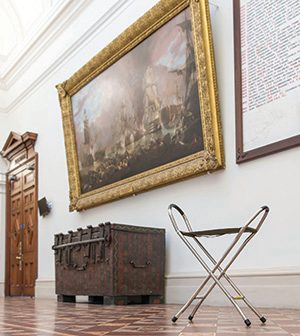Autumn Statement 2016: Museums and Galleries tax relief
We've teamed up with accountancy firm Lovewell-Blake to summarise the benefits of the changes in tax relief for Museums and galleries, announced in November's Autumn Statement.
During the 2016 Budget, the government announced the introduction of an additional corporation tax relief for museums and galleries that would be available for temporary and touring exhibition costs. The Autumn Statement 2016 saw the announcement of this relief being extended to include permanent exhibitions.
The relief was designed to encourage museums and galleries to develop new exhibitions, and to display their collections to a wider audience. There are currently no tax reliefs for this sector so it is a welcome piece of legislation, with the most recent announcement also applying to smaller museums who do not regularly hold temporary exhibition spaces.
The relief will affect qualifying expenditure incurred on or after 1 April 2017, but before 31 March 2022 unless it is extended by the Government. The Government will review this in 2020, setting out their plans beyond 2022. The relief will allow qualifying companies to claim an additional deduction in calculating their taxable profits, being the lower of 80% of the total amount of the qualifying expenditure incurred, or the amount of the qualifying expenditure incurred that is EEA expenditure (at least 25% of the core expenditure on the production of the exhibition should be expenditure on goods or services that are provided from within the EEA).
The deduction should be based on expenditure on the activities involved in producing, de-installing and closing the exhibition at every relevant venue. Certain storage expenditure will also be included, again subject to condition. It will not include ordinary running costs, costs of marketing or promotional events, legal services, or expenditure on the further development of a running exhibition.
The above conditions are by no means exhaustive and there are a number of other detailed conditions that need to be met which should be checked through in detail beforehand. However they should give you a guideline as to the types of company and expenditure this relief will attract.
The relief will allow qualifying companies to claim an additional deduction in calculating their taxable profits, being the lower of 80% of the total amount of the qualifying expenditure incurred, or the amount of the qualifying expenditure incurred that is EEA expenditure (at least 25% of the core expenditure on the production of the exhibition should be expenditure on goods or services that are provided from within the EEA).
The deduction should be based on expenditure on the activities involved in producing, de-installing and closing the exhibition at every relevant venue. Certain storage expenditure will also be included, again subject to condition. It will not include ordinary running costs, costs of marketing or promotional events, legal services, or expenditure on the further development of a running exhibition.
The above conditions are by no means exhaustive and there are a number of other detailed conditions that need to be met which should be checked through in detail beforehand. However they should give you a guideline as to the types of company and expenditure this relief will attract.
Accountants, Business Advisers and Financial Planners in Norfolk, Suffolk and Cambridgeshire - Lovewell-Blake